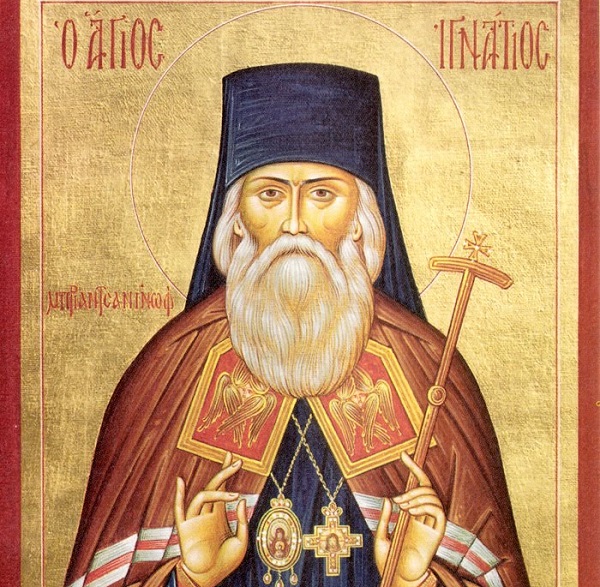Set your Thoughts on Fire
7 November 2019I’m pouring out the words of my heart, which is leaping with unalloyed and inexpressible joy. Brethren, if you enter my words with pure thoughts, you’ll rejoice as if you were at a spiritual banquet. Faith in Christ is life. Those who are already nourished with faith, in the course of this earthly life, taste the eternal life which has been prepared for the righteous at the end of this course. The Lord said: ‘Whoever believes in me has eternal life’.
Through faith, people of God withstood harsh trials. Having become accustomed to the riches and rapture of eternal life, they counted as detritus the charms of this fleeting one. With faith they accepted sorrows and worries as gifts from the Triune God, gifts through which he enabled them to become imitators and participants in the sufferings of one of His all-holy Persons, Who consented to take upon Himself our nature and to effect our redemption. The boundless joy which is engendered by faith devours the harshness of the pain. So it is that, in the midst of excruciating tortures, people feel only delight. Just before his execution, the great martyr Efstratios (13 December) confessed precisely this to the provincial governor, Agricola: ‘The tortures to which you’ve subjected me are a great joy’.

Through faith, the saints plumbed the depths of humility. Through the clear eyes of faith they saw that human sacrifices to God are nothing other than gifts of God to us, our debts to Him, of no use to Him, but necessary and redemptive for us. ‘Listen, my people’, says God, ‘because I’m going to talk to you. Listen, Israel, because I’m going to complain to you. I am God, your God. I won’t judge you for [the quality of] your sacrifices… because the whole world is mine and so is all its riches. What have you got that you didn’t receive? So, if you’ve received it from God, why do you boast as if you hadn’t received it as a gift? From those who’ve been given much, much will be required; and from those who’ve been given more, more will be asked’.
The saints of God performed miracles, raised the dead, forecast the future, were replete with spiritual sweetness, but, at the same time, they were rich in humility. In wonder, astonishment and fear, they saw that God generously consented to send His Holy Spirit to us who are dust, mud. In the face of this mystery, the mind is overcome with terror and is rendered silent, the heart overflows with ineffable joy and the tongue has no power to express this.
Through faith, the saints loved their enemies. The eyes of their mind, enlightened by faith, gazed steadfastly on God, through His providence. They attributed all the attacks they suffered to the fact that divine providence allowed these. David always saw the Lord before him so that he would not lose heart in his trials and sorrows. So it was that, when he was cursed and stoned by Shimei [and his guard wanted to cut the man’s head off], he replied: ‘What does this have to do with you, you sons of Zeruiah? If he is cursing because the Lord said to him, “Curse David”, who can ask, “Why are you doing this?’”. The guards were thinking angrily about revenge, but David humbly said: ‘Leave him alone; let him curse, for the Lord has told him to. It may be that the Lord will look upon my misery and restore to me his covenant blessing instead of his curse today’.
The soul accepts trials as cures for its ailments. It’s grateful to God and sings to Him: ‘Send me trials, Lord, send me temptations. Set my thoughts on fire, and my heart also’. Let us face our difficulties in this way. Let us not harbor any ill-will or any enmity towards other people or any agents of our trials. The soul which glorifies its Maker, the soul which is grateful to the heavenly Doctor, overflowing with inexpressible feelings, then begins to bless the means of its cure.
And there you are! Suddenly love for enemies ignites in the soul. Then the person concerned is ready to lay down his or her life for their enemy, believing that, in reality, this isn’t a sacrifice but an obligation, the obligation of an unworthy servant. We enter into love for our neighbor and, through this, into love for God. We’re in God and God is in us. This is the treasure contained within faith, our intercessor and the giver of hope and love. Amen
Desert of Saint Sergius, 1840.






